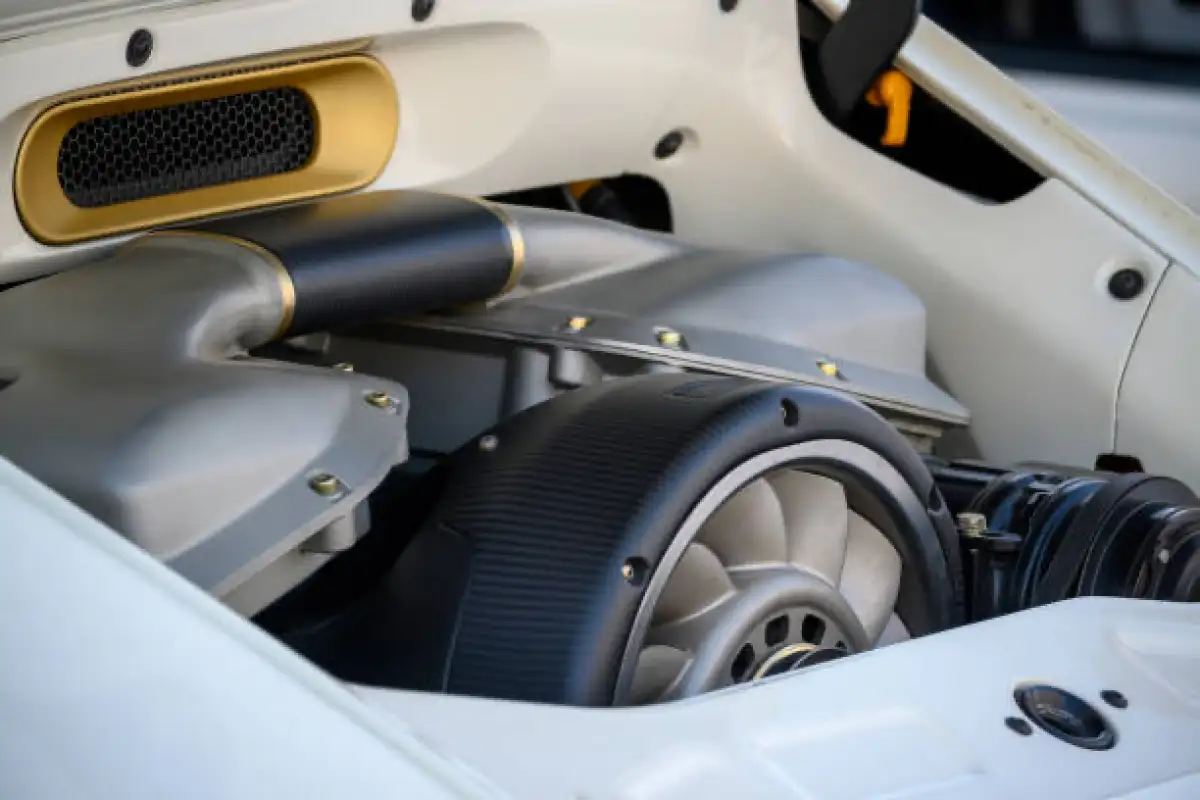Are you wondering how to check car is GCC specs effectively? This guide offers clear, step-by-step methods to ensure your vehicle meets GCC standards. Read on to learn how a simple VIN decoding or a quick label check can save you from future hassles.
How to Verify GCC Specifications in 5 Steps

1. Locate the Vehicle Identification Number (VIN)
Every car comes with a 17-character VIN that is key to verifying its origin and compliance. You can find the VIN on the lower dashboard (driver’s side), on the door jamb sticker, or in the engine compartment. Remember, the first character of the VIN indicates the manufacturing region; for instance, a 'G' signifies vehicles built for GCC specifications.
2. Use Free VIN Decoder Tools
Decoding your VIN is an essential step. Utilize free tools such as the UAE Ministry of Economy VIN Check or other reputable VIN decoders. These tools reveal important details like GCC compliance status, factory-installed cooling systems, and even the presence of sand-resistant air filtration. They simplify the process while ensuring you have accurate information.
3. Check the Compliance Label
Search your vehicle for a metal plate or sticker that states it is approved for GCC countries. This label often includes both Arabic and English text along with temperature ratings up to 55°C. You might find this label on the driver’s door edge, inside the glove compartment, or under the hood near the battery. Its presence confirms the vehicle’s readiness for the region’s extreme climate conditions.
4. Review the Owner’s Manual
Your owner’s manual is a treasure trove of details regarding vehicle specifications. It usually contains references to GCC certifications and instructions tailored to high-temperature and dusty environments. Reading this manual ensures that you understand any special maintenance or repair requirements recommended by the manufacturer.
5. Seek Professional Verification
For added confidence, arrange for an inspection at an authorized dealership or a trusted vehicle inspection center. Professional inspectors can cross-check your VIN data against physical labels and certification documents. This step is particularly valuable if you are considering a used car purchase, ensuring that the vehicle genuinely meets GCC specifications.
Why GCC Specifications Matter in 2025

Understanding GCC specifications is critical to ensure durability and optimal performance. Cars built to these standards feature robust air conditioning systems designed for extreme heat and enhanced engine oils like the 5W-50 grade for reliable performance in high temperatures. Additionally, interiors often include UV-protected materials to withstand harsh sunlight. Vehicle warranties in the region depend on these standards, as manufacturers may void coverage if the car is not properly configured for GCC conditions.
Frequently Asked Questions

Q1:How can I be certain my car meets GCC specifications?
Verifying GCC specs involves a careful check of your vehicle’s VIN, compliance label, and details provided in your owner’s manual. Using a trusted VIN decoder gives you the technical breakdown, while a physical inspection of the label reaffirms the information. Professional verification at an authorized inspection center can clear any doubts. This combined approach ensures you are fully informed about the vehicle’s GCC compatibility.
Q2:What are the risks of buying a non-GCC specification car in the region
Purchasing a car that doesn’t meet GCC specifications can lead to performance issues, especially under high temperature and dusty conditions. The vehicle may not have the necessary cooling systems or sand-resistant features, which can affect reliability and longevity. Furthermore, warranty claims might be denied if the car isn’t certified for GCC use by the manufacturer. Thus, ensuring compliance is crucial for long-term peace of mind.
Q3:Can modifications be done to convert a non-GCC car to meet GCC standards?
While it is possible to retrofit certain features, converting a non-GCC car fully involves significant modifications. This process can be expensive, typically ranging between AED 10,300 to AED 15,300 or SAR 10,300 to SAR 15,300. Modifications might include upgrading the air conditioning system and adjusting engine management systems. It is often more economical to choose a car that already meets GCC specifications rather than attempting to convert one.
Q4:Where can I find reliable GCC approved vehicle models?
Look for well-known models with established reputations for GCC compliance, such as the Toyota Land Cruiser, Nissan Patrol, and Hyundai Palisade. Authorized dealerships and inspection centers typically verify these models during pre-sale checks. Additionally, comprehensive VIN reports and detailed owner’s manuals provide further assurance. Always opt for vehicles with clear documentation verifying their GCC specifications.
This article is for reference only, please follow the latest laws and regulations in your region.
Read more:
Best 2025 Car Loan Rates in UAE

Mustafa Karim, having been deeply involved in automotive research and development for over ten years. He is fond of Japanese cars, and their precise and energy-efficient features have influenced him. In his spare time, he loves Japanese anime and kendo, drawing inspiration from them for control system research and development. He also often shares cutting-edge automotive knowledge on platforms, contributing to industry innovation and adding strength to automotive development with his expertise.













